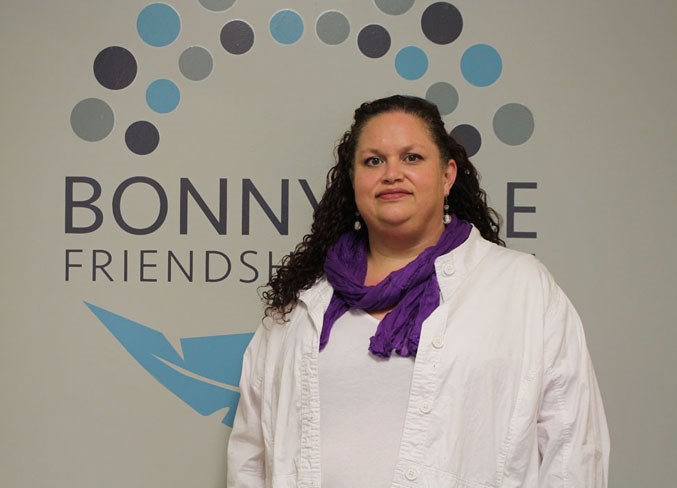“It’s a cultural genocide that has resulted in incredibly high rates of indigenous women, girls, and two-spirit people going missing and murdered in this country.”
For Bonnyville Friendship Centre program manager Alania Sanregret, the final report on the national inquiry into the missing and murdered indigenous women and girls in Canada was right to use the term that has made people uncomfortable.
The federal government announced the establishment of the national inquiry into missing and murdered indigenous women and girls on Aug. 3, 2016. As there was limited information regarding the issue, the report was meant to create a broader image of the problem in Canada and offer suggestions on how to address it.
Those involved delved into current research available, held public hearings, collaborated with elders and knowledge keepers in indigenous communities, and looked through police records regarding cases on indigenous women, girls, and the two-spirit, lesbian, gay, bisexual, transgender, queer, questioning, intersex and asexual (2SLGBTQQIA) people.
In the report, which was released June 3, it stated the term ‘genocide’ was more appropriate for the national inquiry. Over three years of research, the the inquiry noted the information gathered points to the existence of a targeted attack.
In international law, genocide is defined as acts committed with the intention to destroy a national, ethnical, racial or religious group by killing members, causing serious bodily harm, and deliberately inflicting conditions on the group to bring about physical destruction in whole or in part.
Cold Lake First Nations Coun. Dean Janvier noted that while the use of genocide was surprising to describe the collective experiences of indigenous women, he believes it’s easy to see why the inquiry reached that conclusion after reviewing the information they gathered.
Agnes Gendron, executive director of the Cold Lake Native Friendship Centre, said it was about time the issue was addressed on a large scale.
”This is real. It’s happening in our own backyard, what’s going on, and there’s a lot of good people in this country and it’s too bad they’re wrecking it for everybody.”
Expanding the report to include the 2SLGBTQQIA community was an important aspect for Sanregret.
”They discovered the amount of women, or the amount of trans women and queer people, two-spirited people, that have also suffered because of the, not only racism and all the risk factors associated with being an indigenous woman or girl, are doubled or tripled for people that are transgender or LGBTQ within the community.”
Janvier added, “I think that it’s very important that the commission was opened to the broad range of experiences of both women and those groups that identify as lesbian, gay, bisexual or otherwise so that they wouldn’t feel left out of the study and the experience. They’ve been marginalized for far too long, and it was very important they had their voice heard and their realities are also acknowledge by the commission.”
Originally, the report was to be completed within 28 months. It was later extended by the federal government to 34 months.
Along with information gathered through research, it included stories from over 2,000 survivors and family members of women and girls who were harmed through violence. They shared their experiences, and the report claims everyone involved began their healing path by being able to participate in the inquiry.
The analysis found that indigenous women and girls are 12 times more likely to be murdered or go missing than members of any demographic in Canada. According to Statistics Canada, indigenous women and girls made up almost 25 per cent of all female homicides in the country between 2001 and 2015.
It included over 200 calls for justice as a result of the findings, such as the federal government partnering with indigenous people to develop a national action plan to address violence against indigenous women and girls, and to take all measures necessary to investigate, prevent, and punish those who perpetrate crimes against the parties.
For Sanregret, one of the suggestions that stood out was the implementation of stable and permanent funding for programs.
”Working on community-based health and wellness services, things that are trauma-informed, culturally-sensitive, client-based, those are things that are going to work best,” she expressed. “Those are things that we can actually do if we’ve got the funding and we’re able to work with the right people.”
While there was support for the report and the recommendations made, groups such as the Women of the Métis Nation believe they fell short when it came to what the families of the missing and murdered indigenous women and girls wanted to see in terms of investigations for their loved ones.
According to the Women of the Métis Nation, none of the 29 Métis-specific calls for justice provided concrete and effective action to be taken or identified specific steps to reduce violence and increase safety for Métis women and girls.
In a press release, Melanie Omeniho, president of Women of the Métis Nation, said, “We’re relieved that the final report of the national inquiry has been tabled. Now, we can press forward with our work to advocate for systemic and the whole of government approaches to ending violence against all Métis women, girls, and 2SLGBTQQIA people.”
The scope of the issue of violence against indigenous women, girls, and 2SLGBTQQIA is set against a complex backdrop, according to the inquiry. It could be physical, psychological, financial, sexual, or spiritual. The report further stated it’s rooted in a system that genocidal policies were in place long before the targets were born.
With the findings released, Gendron hopes it’s a step in the right direction for everyone to be treated as equals.
”To me, it’s an eye opener to respect and accept one another because there’s so many people in our country now that are different ethnic groups and for too long native people were invisible. They were made invisible by society, and it’s mind boggling to even think about.”



